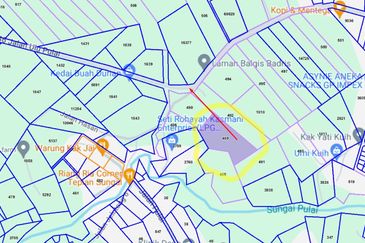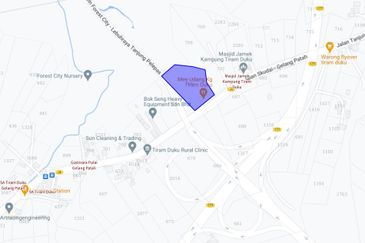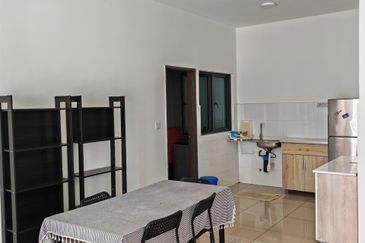PETALING JAYA (Sept 2): Currency market movements can have a significant impact not only on the return provided by an overseas asset, but also on the flow of international capital into property markets, said global property consultancy Knight Frank.
 “Currency has, and will continue to be, a driving factor for both property purchaser patterns and property asset performance.
“Currency has, and will continue to be, a driving factor for both property purchaser patterns and property asset performance.
“Given the monetary tightening cycle now taking place in the US, those with US dollar or linked currencies will find their spending power enhanced compared to many other markets and could influence the direction of capital flows.
“Currency can influence returns at the purchase, hold and disposal stages and investors need to be aware of how fluctuations can impact total returns over the lifetime of an investment,” said Knight Frank Asia-Pacific head of research Nicholas Holt in the firm’s Global Currency Report 2017.
According to the report, the six currencies that are likely to influence buying behaviour in 2017 would be the US dollar, British pound, euro, Japanese yuan, Chinese yuan and Russian ruble.
“Between June 2014 and January 2016, the US dollar appreciated by 21%, making it more expensive for international buyers to purchase in the US. In recent years, the strong US dollar has had a notable influence on non-resident purchases in the US.
“This link between currency and cross-border transactions is underlined by data from the National Association of Realtors in the US which shows that the appreciation in the US dollar between 2014 and 2016 coincided with a 25% fall in non-resident property purchases across the US. Purchases by US residents increased by 10% over the same time period,” said Knight Frank.
It added that from the perspective of an investor looking to exit a market, British and Turkish homeowners abroad have seen the most significant returns over the last year, as a result of currency movements.
“Sterling-denominated buyers who bought a prime property in Berlin in 4Q2015 and sold in 4Q2016 would have seen a 26% return and Turkish lira-denominated buyers a 27% return. A euro-denominated buyer would have realised a 9% return over the same time period,” added Knight Frank.
Knight Frank Malaysia international project marketing Dominic Heaton-Watson cautioned that while currency shifts can be significant, it is important to keep in mind the fundamentals that underpin property markets such as economic fundamentals, political and geopolitical risks and future expectations.
“These factors are often much less volatile and play a pivotal role in selecting a safe-haven investment destination,” he said.
On the Malaysian market, Knight Frank Malaysia executive director of research and consultancy Judy Ong said the recent rebound in Malaysia’s economy and the strengthening of the Malaysian ringgit offer a ray of hope for recovery in the local property market.
“Malaysia remains as an attractive investment destination in the region due to its political stability, well developed infrastructure and stable property market with relatively lower entry prices that continue to offer reasonable returns,” she said.
In the report, Knight Frank has also identified the key international buyers across six global cities and highlighted the extent to which currency shifts over the last year have influenced buying power.
“In our selected list of global cities, international buyers in London had the best opportunity for discounts on a currency basis alone between 1Q2016 and 1Q2017.
“A prominent example would be ruble-denominated buyers in London who in 1Q2017 would have found it 28% cheaper compared with 1Q2016.
“Over the same time period, Thai baht-denominated buyers in New York would have found their acquisition 9% cheaper if they had bought in March 2017 compared to March 2016,” it said.
TOP PICKS BY EDGEPROP

Seksyen 8, Kota Damansara
Kota Damansara, Selangor

Seksyen 5, Kota Damansara
Kota Damansara, Selangor

Jalan Persisiran Laman Setia, Taman Laman Setia
Gelang Patah, Johor

Cubic Botanical
Pantai Dalam/Kerinchi, Kuala Lumpur

Millerz Square
Jalan Klang Lama (Old Klang Road), Kuala Lumpur

Astor & Barrow @ Millerz
Jalan Klang Lama (Old Klang Road), Kuala Lumpur















hero.jpg?GPem8xdIFjEDnmfAHjnS.4wbzvW8BrWw)



